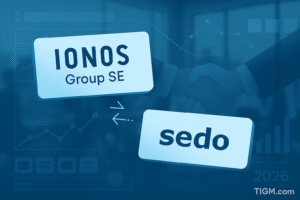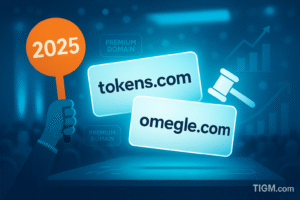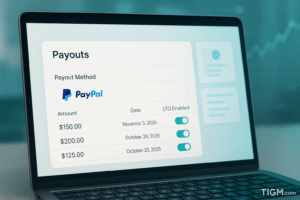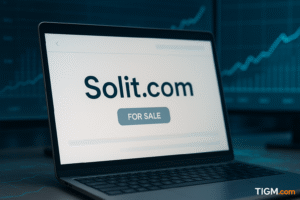Artificial intelligence tools are fundamentally altering how entrepreneurs approach domain selection, with AI-powered name generators producing thousands of brandable options in seconds—a process that previously took weeks of brainstorming and availability checking.
The shift is visible across startup ecosystems. Founders who once hired branding agencies or spent days workshopping names are now feeding AI prompts describing their business concept and getting instant lists of available domains complete with logo mockups and brand positioning suggestions.
How the Tools Actually Work
Modern AI name generators combine large language models with real-time domain availability APIs. You describe your product—say, a project management tool for remote teams—and the AI generates names that are pronounceable, memorable, and linguistically neutral across major markets.
The better tools go beyond random word combinations. They analyze successful startup naming patterns, understand phonetic preferences, and avoid linguistic pitfalls like names that sound unfortunate in major languages. Some integrate trademark databases, flagging potential conflicts before you get attached to a name.
The Quality Problem
Here’s what the AI enthusiasts won’t tell you: most AI-generated names are forgettable. The tools excel at producing available names, not necessarily good names. You’ll get “Teamflux” and “Syncflow” and “Collabify”—names that check every algorithmic box while having zero emotional resonance.
The best brand names—Apple, Nike, Amazon—work because they’re unexpected, memorable, and carry meaning that extends beyond product category. AI generates names that are safe, available, and utterly bland. They optimize for not being terrible rather than being great.
Where AI Actually Helps
The technology’s real value isn’t replacing human creativity. It’s accelerating the availability-checking grind. Founders can test hundreds of naming directions in hours instead of days, identifying what’s taken and what’s possible before investing emotional energy.
AI also catches patterns humans miss. It’ll flag that your clever portmanteau sounds like a slur in Mandarin, or that every .com variation is parked by domainers demanding five figures. That feedback loop saves founders from dead-end naming directions.
Impact on Domain Investors
The AI naming surge is creating market volatility. Generic brandables in the $1,000-$5,000 range face downward pressure as AI-generated alternatives flood registration queues. Why pay $3,000 for someone’s aged brandable when AI can generate 50 available alternatives instantly?
Premium domains remain insulated. AI can’t generate “Stripe.com” or “Notion.so” equivalents—truly great names that are short, memorable, and category-defining. The market for five and six-figure domains isn’t threatened by AI tools generating synthetic brandables.
The Irony
Companies using AI to generate names are launching with domains like “Synthflow.ai” and “Nexabot.tech”—names that immediately telegraph they were AI-generated. There’s a sameness emerging, a genericness that defeats the purpose of branding.
The best founders use AI as a research tool, not a decision-maker. Generate 500 options, eliminate the terrible ones, then apply actual human judgment to what remains. Technology accelerates the process. It doesn’t replace taste.






